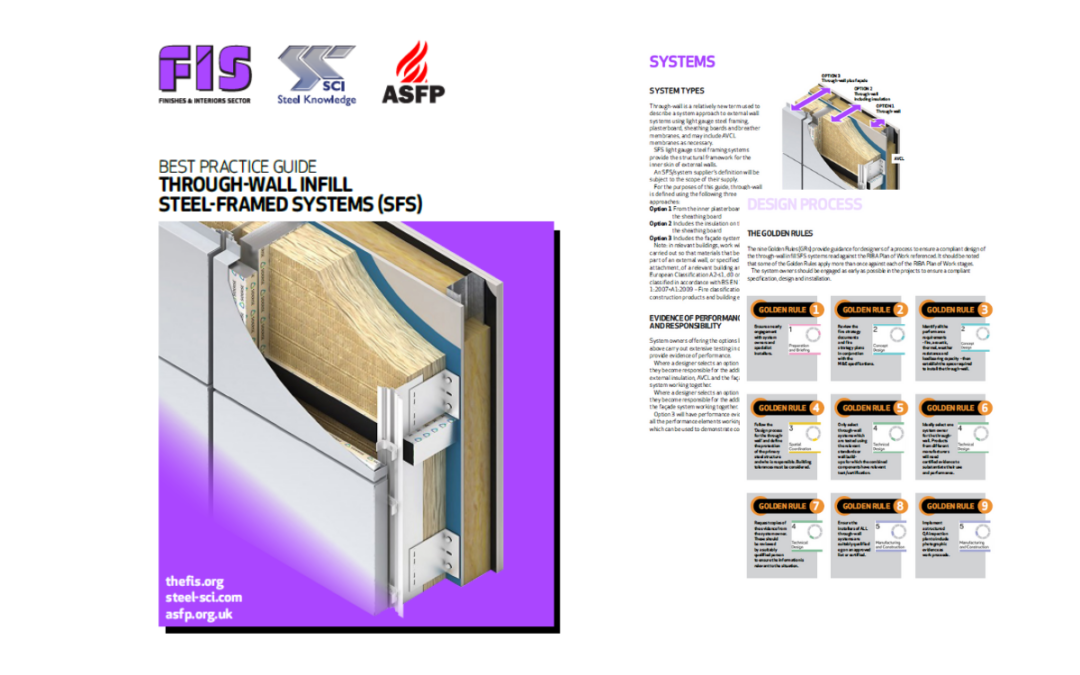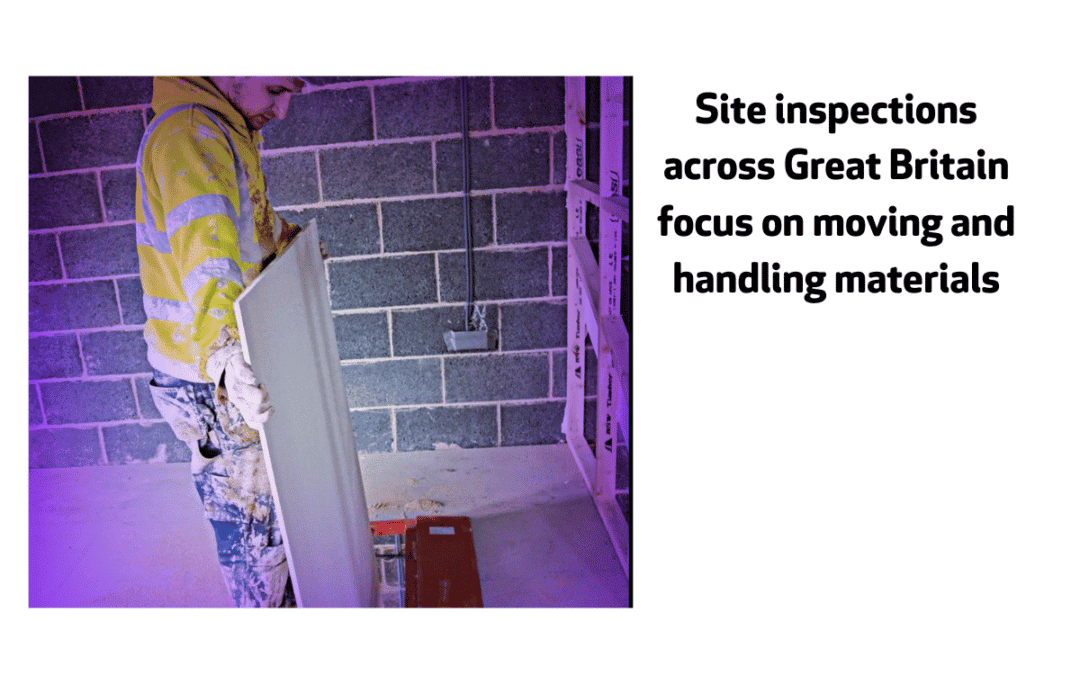
by Clair Mooney | Oct 13, 2022 | Main News Feed
The new generation of Pagabo’s refit and refurbishment framework, will replace the current framework, which expires in February.
The new generation will run for four years from April 2023 and provide a compliant and collaborative route to market for public sector clients to procure refurbishment works valued at £50,000 and above.
SMEs are encouraged to apply for positions on the five value based lots
With a total value of £1bn and to meet the demand for Pagabo’s growing base of national clients across all major business sectors, the framework will be split into five value-based lots as follows:
- Lot 1 – £50k to £500k
- Lot 2 – £500k to £1m
- Lot 3 – £1m to £5m
- Lot 4 – £5m to £15m
- Lot 5 – £15m+
Under these lots, up to nine contractors will be allocated to regional sub lots, comprising six core and three reserve suppliers.
A number of these places are reserved for SMEs to ensure fair access for organisations of any size, to provide choice for clients, and to ensure the generation of maximum positive social impact for communities.
Client organisations will be able to both direct award and further compete their requirements
Suppliers on the core list will be eligible for direct appointments and further competitions, and those on the reserve list will only be eligible for direct appointments. However, they will be included in further competitions should not enough from the core list respond to a further competition expression of interest.
Red Kite Learning Trust (RKLT) will be the contracting authority for the new agreement, continuing its role from the current iteration of the framework.
Maintaining social value and adhering to the Construction Playbook with the refit and refurbishment framework
Jason Stapley, managing director at Pagabo, said:
“The performance of the original Refit and Refurbishment Framework shows that there is a definite requirement for this type of procurement solution, and after lots of work we are now pleased to be inviting suppliers to submit tenders.
“As this is a second-generation framework, we have liaised with the contracting authority, existing client organisations and potential suppliers to gain feedback on the current version. This has allowed us to examine what has worked well, and where through changes more organisations can benefit from use of the framework – along with any changes to keep our processes at the forefront of the procurement golden standard and adherence to the Construction Playbook.
“As always, social value remains at the centre of our actions. Both client organisations that use this – and our other frameworks – and the appointed contractors will have access to a free version of Loop’s social value software for all Pagabo procured projects. This access will allow them to report on and demonstrate the social value being generated by the project and their actions.”

by Clair Mooney | Oct 13, 2022 | Skills
Despite concerns about a recession, the industry’s skills shortages have shot up the agenda once again, with ‘People and skills’ identified as one of the four most important strategic priorities in the Construction Leadership Council’s (CLC) new vision and leadership summary published in September.
The CLC has stated that it will focus on people issues within the industry, with a big push on attracting talent and enhancing skills for the future. It is also very keen to ensure that, if construction business insolvencies do start to increase, workers at risk of redundancy are quickly redeployed and not lost to the sector.
The issue of recruiting enough people into the sector isn’t a new one, but it is becoming increasingly urgent. In 2017, it was predicted around 500,000 workers are expected to retire from the industry over the next 10 years which doesn’t leave long to fill this gap.
As well as replacing the exiting skills and experience, the industry also needs to recruit 53,200 additional workers every year to keep pace with the levels of demand, according to the CITB’s Construction Skills Network report, including people with new skills in digitalisation, sustainability and offsite manufacturing.
How can employers attract new people into construction?
While it might sound like a mammoth task, there are lots of ways for employers to attract new people to join the industry.
Apprenticeships, traineeships, graduate jobs, placements and internships, T Level courses, work experience and taster opportunities, and any well supported entry-level jobs, all provide great ways for young people to gain the skills and experience they need to forge a career in construction.
If your organisation is currently offering any opportunities like this, make sure they are added to Talentview Construction (TVC), a free online platform that helps individuals to get started in the construction industry.
This month marks the first anniversary since TVC was launched, supported by CITB industry levy funding and backed by Government.
Over the last 12 months, more than 11,600 early careers vacancies have been added to the site, attracting more than 48,000 views from potential applicants.
How can Talentview Construction help FIS members with recruitment?
By using TVC to support with early-careers recruitment activities, you can:
- Promote information about your business
- Upload unlimited vacancies and training opportunities
- Search for local candidates
- Create saved searches and alerts for people who match your criteria
- Have direct contact with individuals
- Manage the recruitment of numerous positions
- Integrate with existing recruitment systems
The platform can also help you build links with local schools. There are 148 universities, university technical colleges (UTCs), FE colleges and schools across the UK registered on the platform – including the Heart of Yorkshire Education Group, Chesterfield College, South and City College Birmingham, and the United College Group London – all of which will be incorporating student registration onto TVC as part of their 2022/2023 intake.
To help you promote vacancies on Talentview Construction, there is a handy Comms Toolkit which has free videos and social media graphics, as well as text that can be used across websites, newsletters and other comms: https://bit.ly/CTRS-TVC-employers-toolkit
For more information on how TVC can support your organisation with recruitment, visit: www.talentview.org/construction

by Clair Mooney | Oct 12, 2022 | Skills
Finishes and Interiors Sector (FIS) and the Worshipful Company of Plaisterers are delighted to announce the annual Training Awards will be presented by the Lord Mayor of London.
The 694th Lord Mayor of the City of London, Nicholas Lyons will be attending the Training Awards on 22 November, where he will be continuing the tradition of the Lord Mayor presenting the worthy winners with their awards.
Held at the Plaisterers’ Hall in London from 12:00 – 15:30, the Training Awards recognise excellence and achievement in plastering and interior trades and will celebrate:
- The achievement of apprentices
- Students who have exceeded beyond expectations
- The delivery of training by colleges and training providers
- Training delivery by an FIS member company
- Mentors and others who have supported sector training
- Lifetime contribution to sector training
Commenting on the awards, FIS President Helen Tapper and Member of The Worshipful Company of Plaisterers Industry Committee, said:
“We are delighted to welcome the Lord Mayor to the annual training awards. The event showcases the very best of the sector’s occupations and the achievements of students and apprentices, supportive employers and mentors, colleges and training providers.”
Garth Manger OBE, Clerk of the Worshipful Company of Plaisterers said:
“The Worshipful Company of Plaisterers is delighted to be partnering with FIS and hosting the Training Awards in our Hall. Having the Lord Mayor present the prizes will make it a very special day for the worthy winners and we look forward to welcoming him and the winners on 22 November”.
The awards, which traditionally covered plastering and drylining, have expanded to cover the wider finishes and interiors sector and include the following occupational areas: Dryliners, Ceiling Fixers, Partition Installers, Plasterers, Carpenters and Joiners, Access Flooring Installers and Steel Framed System Erectors.
Trade-specific sponsored awards include the British Gypsum Trophy – which recognises the highest achievement in drylining skills education – and the Formula Trophy, for contributions to the development of skills and long-term future of Fibrous and GRG plasterwork.
For more information on the awards, visit www.thefis.org/training-awards-2022 or https://plaistererslivery.co.uk/industry-support/plasterers-training-awards/ or call 0121 707 0077.

by Clair Mooney | Oct 10, 2022 | Technical
FIS has launched a new Best Practice Guide for Through-wall infill steel framed systems (SFS) to provide a standard definition of ‘through-wall’ and assist in the design, specification and installation of SFS ‘through-wall’ systems.
‘Through-wall’ has become a generic term used by suppliers of systems to describe infill exterior walls constructed from Light Gauge Steel Frame (LGSF) sometimes described as steel framing systems (SFS) where frame, inner plasterboard and external sheathing boards are tested and sold as a system. However, in a similar way that the framing can be defined as LGSF and SFS, there is no consistency in what constitutes ‘through-wall’.
The guide has been drafted by a panel of experts from the FIS SFS working group in conjunction with the Steel Construction Institute (SCI) and the Association for Specialist Fire Protection (ASFP).
Aimed at everyone in the delivery chain from design to specification, fire engineers, contractors, site managers and installers, it explains the three options:
- From inner plasterboard to external sheathing board
- From inner plasterboard to external sheathing board and external wall insulation
- From inner plasterboard to external sheathing board, external wall insulation and façade system
Commenting, Andrew Way, Associate Director at the SCI, said:
“The term ‘through-wall’ has been in common use in the construction industry for many years now, but its precise meaning is still unclear for many people. This is not surprising as a recognised definition of ‘through-wall’ has not been provided up until now. This joint publication from FIS and SCI addresses the need by providing a clear definition and presenting useful information about the topics and performance characteristics related to ‘through-wall’ systems. The leadership of FIS in driving this publication has been critical in achieving this new guide for the industry to utilise”.
Dr Andrew Taylor, Technical Officer at ASFP said:
“Understanding the impact of different component materials on the ability of a constructed system to perform, together with how the system interacts with the structure and any potential movement, is fundamental to the delivery of a successful installation.”
“LGSF, SFS and through-wall are still emerging technologies and solutions as part of Modern Methods of Construction (MMC). It’s vital that their integration and interface into the building structure to ensure the performance requirements can be met and what clear evidence of compliance is required is addressed as early in the design stage as possible,” added FIS Technical Director Joe Cilia.
The guide is freely available to FIS members from the FIS website at https://www.thefis.org/membership-hub/publications/best-practice-guides/through-wall/ and will be used to form the basis of Continuous Professional Development programmes going forward. Copies are available to non-members on request.

by Clair Mooney | Oct 6, 2022 | Insurance
To help manage risk and provide additional support to its members on insurance matters,FIS has partnered with specialist insurance consultants Construction Shield and AWL Homeproof Limited.
This new service will enable members to test the effectiveness of existing cover and secure an alternative quote. It will also open-up exclusive access to specialist insurance products at highly competitive prices. Members will be supported with Professional Indemnity, Contractors All Risk, Commercial Combined Business Insurance, Directors and Officers Insurance, Motor, Performance Bonds and a range of other relevant specialist insurance products.
FIS is focused on compliance and improved risk management in the finishes and interiors sector. In the past couple of years members have increasingly raised concerns related to rising insurance premiums, reduced cover, onerous endorsements and at times the inability to gain access to the correct cover.
The aim of this new service is to leverage the collective power of its membership to create greater awareness of the risks faced in our sectors and enable meaningful research and development to be carried out, driven from claims and risk data for our members.
This new partnership will support the development of a deeper understanding of claims, how risk is being assessed and to develop different and a more progressive relationship with the insurance sector, one that offers a truly bespoke service whilst also allowing for greater access to insurance products at improved pricing structures.
Commenting on the scheme, FIS CEO Iain McIlwee said:
“The insurance market has hardened significantly in recent years and created a real challenge for members in large parts of our market. This new relationship is structured to help us to better understand and attack this problem and work better as a community.
Our mission is all about building an effective compliance environment and reducing risk for members. Understanding the scope and causes of any claim is key to this, as is establishing a closer working link with the insurance sector to help manage out the causes of claims. We see this as very much a first step in terms of developing a healthier insurance umbrella for our community and focusing our technical and commercial services on reducing risk.”
Mark Potter from Construction Shield added:
“We are enjoying working with FIS who have shown themselves to be a progressive and innovative trade body and very dedicated to the needs of their community. We look forward to working more closely with this community and better understanding pricing and helping to manage risk and also present a healthy and attractive sector to the insurance world. This is something we see progressing over the next few years and we have some exciting ideas around creating a captive and possibly one day a mutual solution that could serve this sector”
The service was officially launhed at the FIS AGM and Regional Conference on 6 October in London.
To obtain a quote, members need to contact Construction Shield on 0121 726 5130 at least 6 weeks prior to their renewal date. They will ask you to provide the schedule from last year’s policy and any details that may have changed or evolved in your business. Construction Shield and AWL Homeproof will aim to secure the best possible price for you.

by Clair Mooney | Oct 6, 2022 | Main News Feed
At its AGM on 6 October, FIS announced its newly elected Board Directors, along with its new President.
Philip Brown, Director of contractor member Meronden, has been on the FIS Board of Directors for five years and will now start his two-year Presidency, following his appointment by his fellow directors.
Philip has more than 45 years’ experience in the construction industry. He started out as an apprentice before going on to project manage numerous interior works, gaining indepth knowledge and experience within the industry before joining Meronden Ltd in 1997 as director.
At his first address to members, Philip said:
“I am a living and breathing contractor – none of this is academic to me, the work that FIS is doing, our vision of the future has to be grounded in the reality of today and we need FIS has to be reactive and flexible, to be there, not just with helpful insight into the future, but to be focussed on helping us to navigate there, to take the next step.”
Also joining the Board from 6 October as executive directors are, Will Hart of Taylor Hart and Kate Hawkins of Stanmore, both contractor members of FIS, and Nigel Watkins of Rockfon, Alan Brown of Forza Doors and Jonathan Cherry of British Gypsum, all supplier members of FIS.
Iain McIlwee, FIS Chief Executive welcomed new Board members and said:
“We’re delighted to announce these appointments to continue the strong leadership at FIS and take FIS on to its next chapter of growth and success.”
He also thanked outgoing President, Helen Tapper for her phenomenal leadership and dedication to the industry. Helen will remain on the Board as Immediate Past President.
Full details on the FIS Board is available at https://www.thefis.org/about-us/board/

by Clair Mooney | Oct 6, 2022 | Skills
The City of London Corporation is leading ‘Skills for a Sustainable Skyline,’ a three-year Taskforce. It aims to identify and fill emerging ‘green skills’ gaps within Central London’s commercial built environment. This work is being lead by a Board of Industry Experts including FIS CEO, Iain McIlwee and a number of volunteer groups, some of which are supported by FIS Members.
As part of this work they are reaching out to businesses and individuals involved in delivering sustainable commercial buildings to gain deeper insight in the skills needed to deliver these projects and the barriers to recruiting, retaining and training them,
Please complete this short questionnaire (8 mins) to help inform the Taskforce on emerging issues facing the sector. Answers to this survey will inform the Taskforce’s evidence base and the interventions in 2023-25. The detail contained in responses will be kept anonymous
You can complete the survey here.

by Clair Mooney | Oct 5, 2022 | Main News Feed
FIS is delighted to announce the appointment of Beena Nana as Head of Skills and Training. In her first three months Beena will be concentrating on the FIS BuildBack programme which ends this year, before taking over from Skills and Training Lead George Swan who retires in March.
Beena has extensive experience in the skills and training arena. She is particularly well versed in SME liaison and apprenticeship, having worked for the Department of Education for many years.
In her new role, Beena will continue to develop the company’s skills strategy including integrating the ground-breaking work FIS is doing on Competency Passports and Frameworks into FIS sector recruitment activity.
Working with industry stakeholders such as CITB and DWP, Beena will lead the company’s efforts to attract new entrants to the sector, qualify the workforce, develop competency plans and support members with their training needs.
Beena commented:
“I am truly excited with my appointment, working in an organisation where I have the opportunity to make a real difference to the sector. Having worked in a similar role, I’m looking forward to working with our members and on the exciting projects ahead of us.”
FIS CEO Iain McIlwee said:
“Beena brings a wealth of experience and some new ways of thinking to the FIS team. Without doubt the shortages in our workforce and the new and more onerous requirements to demonstrate and manage competency are the biggest systemic challenge we face as a sector. Whether you believe recruiting more people, working more productively or evolving to new ways of working are the answer, and the truth is likely to be a combination of the three, the answer is in training and development. We have an ambitious and progressive plan in place to support our community in terms of the recruitment of new people and development of competency plans – Beena will be working with our members to take this to the next level.”

by Clair Mooney | Oct 4, 2022 | Main News Feed
The Welsh Government is committed to a greener, fairer future. Improving existing homes helps tackle fuel poverty and create much-needed jobs, training opportunities, and supply chains.
In Wales, 1.4 million homes are responsible for 27% of all energy consumed and 15% of all demand-side GHG emissions. The free market cannot be relied upon to deliver it. The Warm Homes Programme is therefore designed to support lower-income households in improving the energy efficiency of their home to reduce fuel bills and carbon emissions. It is focused on the owner-occupier and privately rented sectors. The private rented sector accounts for 15% of all households in Wales.
BRE is working with Welsh Government to support their work on developing the next iteration of the Warm Homes Programme. This survey will help provide valuable insight from contractors to do this.
You can access the survey at https://bregroup.com/services/insights-consultancy/advisory/welsh-government-contractor-survey/

by Clair Mooney | Oct 3, 2022 | Main News Feed
The Scottish Government recognises the significant pressures currently faced by the construction industry due to the dramatic rise in the cost of fuel and materials, inflation, and stretched public budgets. These pressures, coming on top of the continued impact from COVID-19, material supply issues and wider economic climate changes, are significantly impacting both public client bodies and members of the construction industry.
In order to help address and mitigate these challenges, Scottish Government have a number of guidance measures that public sector bodies should be aware of when procuring and managing their construction projects. As a reminder, these are set out below.
Construction Policy Note (CPN 3/2021)
Scottish Procurement and Property Directorate issued CPN 3/2021 in 2021 providing advice for Contracting Authorities to manage and mitigate market pressures affecting the availability and affordability of construction sector resources. If a contactor seeks relief from or waiver of their contractual obligations, the contracting authority should refer to the relevant terms and conditions and seek legal advice as needs be to inform their decision. Contracting authorities should also re-examine their models for the design, procurement and delivery of their forward construction portfolio programme. This advice still stands and should be reviewed where applicable in relation to recent and future cost rises.
Prompt payment and Project Bank Accounts
Delayed payments can cause significant pressures in the construction industry, especially on sub-contractors and further down the supply chain. The Scottish Government have addressed this by providing guidance for wider public sector contracts encouraging prompt payment and the use of Project Bank Accounts.
The Scottish Government’s Client Guide to Construction Projects includes a chapter on Fair Payment, where advice on Prompt Payment is consistent with the wider Scottish Government procurement policy Scottish Procurement Policy Note 2/2022. This provides a standard clause for public bodies’ use, requiring contractor and sub-contractor invoices to be paid within 30 days throughout the supply chain of public contracts. A point of contact in the public body must also be provided should the sub-contractor have any difficulty in securing the timely payment of an invoice. The SPPN also asks public bodies to consider the past payment performance of those bidding for public sector contracts. The Scottish Government is committed to paying our contractors promptly, targeting to pay valid invoices within 10 days of receipt, going beyond our contractual commitment to pay within 30 days. Further advice on contract payment terms is included in Construction Policy Note 9/2020.
To ensure that payments are made directly and simultaneously from public sector clients to members of a construction contract supply chain, bodies subject to the Scottish Public Finance Manual must include Project Bank Accounts in tender documents for contracts over the applicable value thresholds. The Scottish Government Project Bank Accounts Guidance defines these thresholds as £2M for building projects and £5M for civil engineering projects.
Sustainable tender pricing
Although costs are increasing, it remains important the public sector actively seek to identify abnormally low tenders to encourage sustainable prices and successful delivery of projects and services. Construction Policy Note 1/2021 reminds the public sector clients of their responsibilities in handling abnormally low tenders and highlights the importance of bidders putting in realistic and sustainable bids.
Whilst Local Authorities, or other bodies not governed by the Scottish Public Finance Manual, are not under obligation to take or follow Scottish Government advice, they are strongly encouraged to carefully review Scottish Government guidance and apply it where appropriate.
The Scottish Government will continue to liaise with both public sector bodies and construction industry representatives and continue their ongoing work with the Construction Leadership Forum to support the sector in managing the current sector challenges.

by Clair Mooney | Sep 29, 2022 | Skills
The SDS Scottish Apprenticeship Awards highlight the key role apprentices, supporting individuals and employers play in delivering the skills Scotland needs, both now and in the future, across the whole economy.
Award categories include:
- Apprentice Ambassador of the Year
- Modern Apprentice of the Year – SCQF Level 6+
- Modern Apprentice of the Year – SCQF Level 5
- Graduate Apprentice of the Year
- Foundation Apprentice of the Year
- SME Employer of the Year
- Large Employer of the Year
- Apprentice Instructor of the Year
- Supporting Net Zero Employer of the Year
- Supporting Net Zero Apprentice of the Year
Nominations close at 12pm on Wednesday 5 October 2022. The winners will be revealed during Scottish Apprenticeship Week which runs from 6 to 10 March 2023.
Nominations can be made online here: Scottish Apprenticeship Awards nominations
Nomination entry rules can be read here: Award nomination rules
Further information on can be found here: Scottish Apprenticeship Awards

by Clair Mooney | Sep 29, 2022 | Market data
The Bank of England has increased
interest rates to 2.25%, their highest level since 2008, and ‘will not hesitate’ to raise them further to reach its target of 2% inflation. Inflation remains high at 9.9% and the
latest statement from the CLC Product Availability Group confirms it is still the ‘biggest issue’ for the industry.
It is most recent strategy, CLC outlines the four priorities to transform construction ‐ Net Zero and Biodiversity, Next Generation Delivery, Building Safety, and People and Skills ‐ as well as more immediate challenges, including inflation, forward pipeline, and business sustainability.

by Clair Mooney | Sep 29, 2022 | Skills
Temporary changes to right to work checks, which allow employers to undertake checks via video calls and use scanned copies rather than original documents, will end tomorrow (30 September). After this date, employers should verify an individual’s right to work using a certified digital identity service provider (IDSP).

by Clair Mooney | Sep 29, 2022 | Market data
THe CPA has produced an economic update which details
- the CBI’s Industrial Trends Survey for the three months to September.
- ONS figues for public sector net borrowing
- Housing including the number of property transactions in the UK for August; and
- The CPA’s analysis of the Chancellor’s Growth Plan 2022 – highlighting key policies affecting construction
FIS members can access the full information here (scroll to Weekly Notes – 23 September 2022)

by Clair Mooney | Sep 28, 2022 | Fairness, Inclusivity and Respect (FIR)
The Construction Leadership Forum (CLF) has launched a National Equity and Inclusion Plan (NEIP) for the construction industry in Scotland to encourage the development of a more diverse and all-encompassing workforce.
Funded by Scottish Government, this latest initiative is part of a wider transformation plan for the industry giving the sector access to a wider talent pool to support growth and help to address labour shortages.
In the construction industry in Scotland 15.4% are women, and there is a gender pay gap of 23%. Some 1.6% of workers in the sector are from a minority ethnic background compared with 4.3% of minority ethnic workers in Scotland as a whole. Figures show 10.5% of the workforce are disabled, 33% of construction workforce are aged 50+ with only 2.7% of starts in Modern Apprentices female. (Figures from Annual Population Survey 2020).
The NEIP seeks to address these imbalances by mainstreaming equity and inclusion. The Plan sets out “Six by 2026” strategic aims which the CLF commits to work with industry to achieve. These aims include the sharing of best practices across industry, using data and industry feedback to benchmark progress, signposting to a range of resources for companies to access and development of industry-wide E&I accreditation.
The Plan was developed following an in-depth study by GenAnalytics which looked at the challenges and current state of play and what current best practice there is from inside and outside the sector. It was informed by a wide stakeholder group including E&I experts, industry and government and found that construction falls way short of equity and inclusion standards compared to other sectors and identified a number of sector-specific issues to be addressed by the Plan.
FIS CEO Iain McIlwee said:
With profound shortages in people and cultural challenges that we need to address as a sector, initiatives like this take on new meaning. A focus on inclusivity isn’t something we should do, it is something we have to. It starts with individual behaviour, but requires a collective effort to truly deliver change.
Business Minister and Construction Leadership Forum chair Ivan McKee said:
“I recognise that we face new economic and social challenges of an unprecedented scale. This plan aims to support wider efforts to address inequality and promote greater diversity within the Scottish construction sector to encourage inclusive growth and help address labour shortages.
Companies with better records of fair work, equity and inclusion do better, have a healthier and more engaged workforce and demonstrate greater diversity of thought. Fairness and inclusiveness encourages better relations with partners, shareholders, customers and employees.
It will help support the increased resilience of construction and reinforce wider efforts to create a more sustainable economy, in line with the Scottish Government’s National Strategy for Economic Transformation.”
Lesley Quinn, Divisional Director, Corporate Affairs at City Building, City Building, one of the case studies featured in the report and three-time Queen’s Award winner for commitment to E&I, said:
“We have worked hard to develop E&I across our business from our 200 apprentices to our leadership team, and the results have been outstanding. There is a growing depth of best practice in and outside of the sector, so it is encouraging to see that sharing this is part of the NEIP.”
Lynsey Brydson, NEIP project lead at Built Environment – Smarter Transformation (BE-ST) said:
“The NEIP sets out a clear path for the sector to follow and importantly this will be benchmarked to monitor the progress that has to be made. Quick progress can be made through signposting to initiatives like the DIveIN programme run by Built Environment – Smarter Transformation (BE-ST) that gives free E&I training and support to construction companies.”
Emma Dickson, Technical Director at Arcadis and industry co-chair of CLF’s Skills and Workforce subgroup, says:
“It is critical that the industry takes action to be more diverse and inclusive. The plan sets out key areas that we should focus on to make that happen. Larger construction companies are making improvements, but many SMEs need tangible support to make the changes needed. The next steps will be critical to make sure this happens.”
The Fairness, Inclusion and Respect (FIR) programme is an industry-wide initiative that aims to make workplaces better for everyone. This National Inclusion Week, the Supply Chain Sustainability School has highlighted findings from its Annual Culture Report and free training and resources available to support the industry in attracting and retaining people from the full pool of talent.

by Clair Mooney | Sep 28, 2022 | Main News Feed
The Building Safety Act introduces a new building safety regime which requires changes to regulations, standards and ways of working. As a result, there are a number of consultations underway, including:
- Building Safety Regulator Fees and Charges ‐ The HSE is consulting on what the new Building Safety Regulator may recover costs for when carrying out its relevant ‘chargeable’ functions. Comments should be submitted online by Friday 7 October.
- Occupied Higher‐Risk Buildings ‐ The Department for Levelling Up, Housing & Communities (DLUHC) is seeking views on the new safety regime for occupied higher‐risk buildings, including proposals for their in‐occupation phase. There are 12 sections to the consultation, including certification, reporting, resident’s duties, appeals, and key building information. Comments should be submitted online or via email by Wednesday 12 October.
- Building Regulations ‐ DLUHC is also consulting on the changes that will be made to Building Regulations to implement the new building safety regime. There are 12 sections to the consultation, including dutyholder roles, gateways, change control process and more rigorous enforcement powers. Comments should be submitted online or via email by Wednesday 12 October.
- Operational Standards Rules ‐ Ahead of the Building Safety Regulator beginning to operate from April 2023, the HSE is seeking views on the proposed operational standards rules which will allow it to effectively monitor building control bodies. Comments should be submitted via email by Tuesday 25 October.
New Secretary of State for Levelling Up, Housing and Communities Simon Clarke has confirmed that there will be no change in the Government’s approach to building safety, writing in The Telegraph that he is “determined to finish the job my predecessors started, fixing the system for good, ensuring that industry rectifies the problems it created”. Clarke will be supported by Lee Rowley as Housing and Planning Minister, and Andrew Stephenson and Baroness Scott of Bybrook as Parliamentary Under Secretaries of State.

by Clair Mooney | Sep 28, 2022 | Skills
The finishes and interiors sector is experiencing shortages of trained and qualified ‘skilled’ labour at every level and there is no immediate easy fix. Employers need to invest in home grown talent and that starts with recruitment. To support this, document provides a summary of the services on offer from the Department of Work and Pensions via Job Centre Plus, you may be surprised at the assistance available to employers all free of charge.
Job vacancies can also be advertised on the FIS Job Spot, just complete the electronic form: https://www.thefis.org/jobspot/

by Clair Mooney | Sep 28, 2022 | Health and Safety
Construction sites are being targeted from Monday 3 October as part of a health inspection initiative supported by the ‘Work Right Construction: Your health. Your future’ campaign.
The campaign is raising awareness of health issues in relation to moving and handling materials to improve the long-term health of those working in construction.
Site inspections will focus on moving and handling construction materials will be checking employers and workers know the risks, plan their work and are using sensible control measures to protect workers from injuries and aches, pain and discomfort in joints, muscles and bones known as musculoskeletal disorders (MSDs).
An estimated 40,000 construction workers suffered work-related MSDs last year. These injuries can have a serious impact on workers’ ability to perform tasks; their quality of life; and in some cases, their ability to stay in work and earn a living. Many can and do suffer from long-term pain and discomfort.
Act now to protect workers’ health
Employers have a legal responsibility to protect workers from ill health and should involve them in managing the risks to their health just as they would with safety.
Workers should not have to accept these injuries and potential long-term suffering as an inevitable part of construction work. They should talk to their employer about the risks and the measures in place to protect their health.
We have advice for employers, workers and small builders.

by Clair Mooney | Sep 21, 2022 | Contractual and Legal, Main News Feed
FIS Consultant Len Bunton continues with the theme of getting paid, and what options are open to FIS members. These monthly Blogs are designed to help FIS Members avoid common traps and build on our focus on collective experience.
As I have set out previously, some of this is self-induced, and that is why I have been working with a number of organisations to help them improve their financial management of contracts. I emphasise again that your payment applications need to be made on time and be fully detailed – if you fail to do either of these, or even worse, both of these, then you will not get paid what you think you are due. However, there are other actions you can take…

by Clair Mooney | Sep 20, 2022 | Technical, Transformation
As part of the work of the Competence Steering Group, Working Group 12 – Construction Products Competence led by CPA presents an innovative white paper, which proposes the built environment industry unite behind a single approach to construction product competence. You can download the white paper here.




















